Who is Uber's new boss Dara Khosrowshahi?
Global firm's CEO is a high-flying Iranian-American with a PR crisis to fix and a predecessor who's still involved
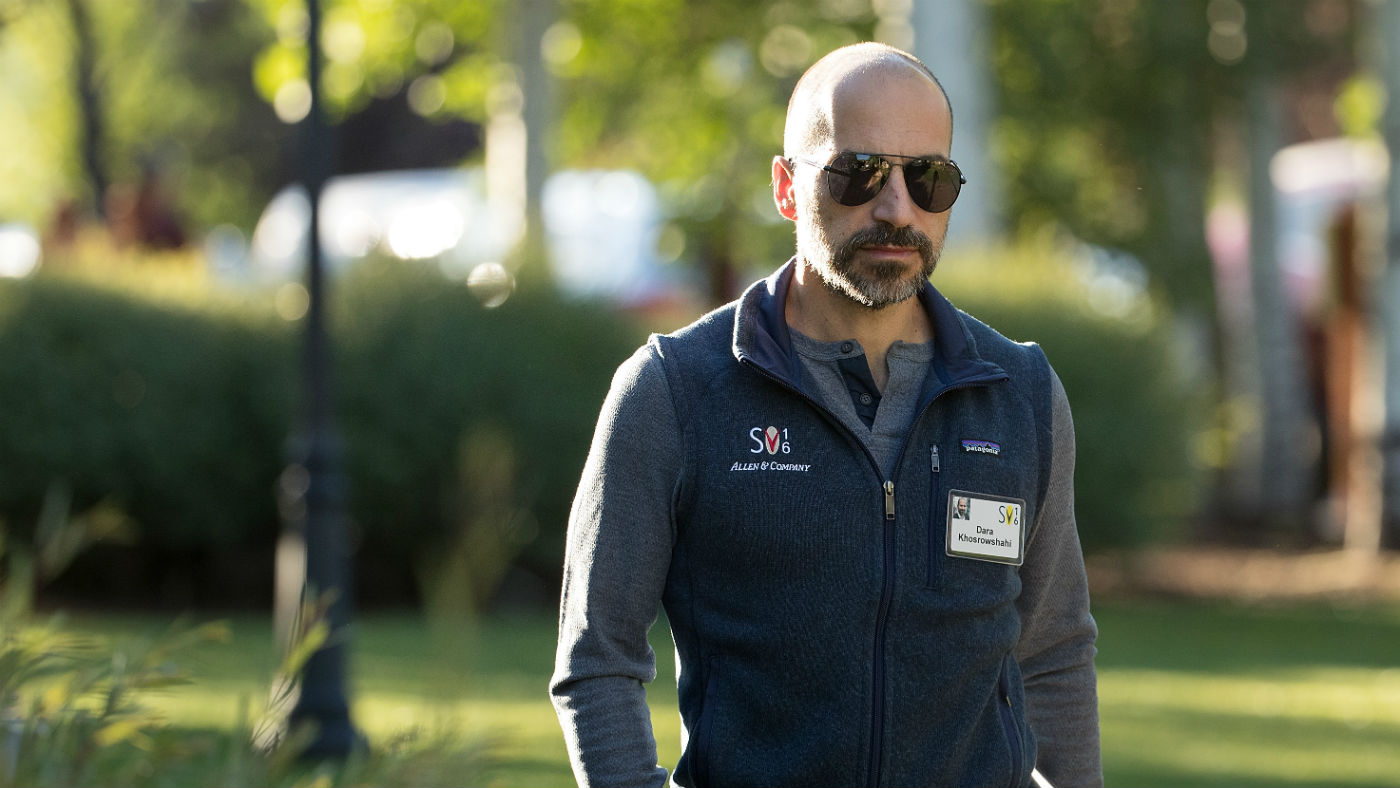
A free daily email with the biggest news stories of the day – and the best features from TheWeek.com
You are now subscribed
Your newsletter sign-up was successful
Uber seeks boost from 700m Facebook users
17 December
As Uber, the controversial taxi-hailing app, continues to fight legal cases worldwide relating to its arms-length employment practices, the company is pressing on with ambitious expansion plans.
Uber's latest initiative, announced last night, is a deal with Facebook that will see it embedded within the social networking giant's Messenger platform. This will give Uber access to a potentially huge new customer base among the 700 million (and growing) users of the chat application.
The Week
Escape your echo chamber. Get the facts behind the news, plus analysis from multiple perspectives.

Sign up for The Week's Free Newsletters
From our morning news briefing to a weekly Good News Newsletter, get the best of The Week delivered directly to your inbox.
From our morning news briefing to a weekly Good News Newsletter, get the best of The Week delivered directly to your inbox.
The venture will kick off with trials in ten US cities, expanding nationwide by Christmas – and internationally thereafter.
The Financial Times notes that Uber already has agreements with a number of map apps including Google and Baidu (an Uber investor), which provide users with external links. A key difference with this new deal is that it will allow users to hail a ride – and pay for it – without leaving Messenger.
This all forms part of Facebook's plan to expand the service into a multi-channel platform "along the lines of China's WeChat or Japan's Line". The networking giant has already rolled out a payments processing system and the agreement with Uber represents its first foray into the transport business. The company has future "ambitions ranging from retail to concierge services".
Users in the US are being offered an introductory deal of a free ride worth up to $20 with Uber if they book it through the Messenger app, the BBC reports.
A free daily email with the biggest news stories of the day – and the best features from TheWeek.com
The FT says a key benefit for Facebook could be persuading more people to hand over payment information. Users without an Uber account will be able to pay using credit or debit card information stored within Messenger, which will be "sent securely to Uber to be charged".
Uber's landmark legal case just got even bigger
10 December
Controversial ride-sharing app Uber has suffered a fresh setback in what is becoming an increasingly critical legal action in California.
The judge in the case has "ruled to expand the class of drivers who can participate and the types of reimbursement they can seek", the Financial Times reports. Essentially more drivers are now suing the company – and for more money.
Originally thousands of drivers had opted to go into arbitration with the business, but the judge has ruled the outcome of this process "unenforceable", and therefore included them in the main class-action lawsuit.
He also ruled to allow all drivers to claim back expenses occurred in their day-to-day operations, such as fuel costs and vehicle maintenance, which they have been paying for themselves. Originally the suit sought only employee entitlements such as holiday.
The case is critical to a rising sector referred to as the 'sharing economy', which CNBC says "connects freelancers with available work". Companies like Uber, Airbnb and others are set up to introduce individuals offering an independent service with others seeking to pay for the service, typically through web-based software applications, taking a commission for their trouble.
For this reason Uber is seen by investors as a technology business, rather than a taxi firm, and has attracted huge investment on that basis. If it loses this case and is forced to treat its drivers as employees, all that will change and a key precedent will have been set.
But Uber remains confident it will win the case and says it will appeal against the latest ruling.
"As employees, drivers would lose the personal flexibility they value most — they would have set shifts, earn a fixed hourly wage, and be unable to use other ridesharing apps," the company said in a statement.
Uber: Black cabs fight back with new app
03 December
The UK's black cab drivers have decided to take on ride-sharing companies at their own game by launching a new app.
Customers will be able to hail black cabs and licensed taxis to their current location, pre-book their journeys and track their driver's location live.
Cab:app, co-founded by London taxi driver Peter Schive, works in a similar fashion to Uber and aims to bring digital revenue to the 9,200 professional taxi drivers around the UK and Ireland. The smartphone app "draws on the heritage and expertise of the black cab industry and translates it for the digital world," Schive said.
The move is yet another salvo in the ongoing battle between black cabs and ride-sharing apps. Last week Transport for London announced a plan to make all black cabs accept card payments, having previously announced a raft of new proposals critics say unfairly target Uber.
Yesterday the Competition and Markets Authority watchdog attacked TfL for that crackdown on Uber, warning it could result in "less choice, higher prices and a worse service". It hinted that it would prefer to see the stringent regulation of black cabs softened to reduce costs and help them compete.
Cab:app is available in cities including London, Leeds and Manchester, as well as smaller towns such as Basingstoke, Eastleigh, Limerick and more. Like Uber it searches for cabs in the local area that can be 'hailed' - and offers the added incentive that users can amass 'Cab:miles' for each journey that, like air miles, can be used to pay for future rides.
But the Daily Mail says Uber will still have the edge on cost. An average three-mile trip in an Uber car in London would cost a minimum of £6.25 plus a charge of 15p for each minute in the car, while the same journey with Cab:app would cost an average of £9.40.
Uber: ditch clampdown and deregulate, says competition watchdog
2 December
In what the Financial Times describes as "a rare instance of a UK regulator criticising the actions of another", the competition watchdog has hit out at the London transport regulator's proposed clampdown on ride-hailing service Uber.
In September, Transport for London laid out a 25-point plan that included measures specifically intended to protect the primacy of black cabs in the face of the rapid growth of Uber. The Daily Telegraph says the plans included a minimum five-minute wait time between hailing a car and it arriving, mandatory seven-day advance booking, a ban on showing cars available for hire in the local area and a restriction on drivers working for more than one company.
But the Competition and Markets Authority has said the proposals would limit competition and increase costs for consumers. It also questioned the evidence base for the five-minute wait – a similar move was ruled unconstitutional in France – and showing vehicles in the local area.
Instead, the CMA stated "there would be value in a broader review of whether maintaining two different tiers – including a high level of regulation on taxis – continues to serve consumers in light of recent changes to the market". This suggests it favours reducing the regulation on black cabs, such as demanding a specific turning circle and requiring drivers to prove extensive knowledge of London's roads, to reduce costs and enable the sector to compete.
TFL's proposals have already sown discord among Conservative ranks, with business secretary Sajid Javid branding them "heavy handed" while London mayor and cabinet colleague Boris Johnson argues that Uber is circumventing the law.
Johnson has spoken out against deregulation as a viable solution, saying this would mean the "effective end of the black cab trade" that many people, especially those without smartphones, still "greatly value".
London cabs take on Uber: cabbies to accept credit cards
26 November
Travelling in London's black taxis could be about to get simpler. The capital's iconic cabs will soon accept card and contactless payments as the battle with Uber deepens.
The plan, devised by London mayor Boris Johnson and Transport for London (TfL), is expected to be approved in February. It should prove popular among Londoners: a study earlier this year found that 86% of respondents backed such a move.
If the plan is approved, all black cab drivers will be obliged to accept card payments from October 2016. Although passengers will not pay a surcharge on their fare if they pay by card, a 20p increase on the minimum fare, currently £2.40, will allow drivers to recoup their transaction costs.
"This move will boost business for cabbies and bring the trade into the 21st century by enabling quicker and more convenient journeys for customers," said Johnson.
Garrett Emmerson of TfL added: "Mandating card payments in taxis will mean customers no longer have to consider how they might pay for a journey before getting into a taxi. It will also benefit drivers, who will see their services opened up to potential new business."
The taxi sector has become a fierce battleground over the past year, as the capital's traditional black cabs try to face off the taxi-hailing app Uber.
The Licensed Taxi Drivers Association has pushed to have the app banned, arguing it acts as a metred pay system, which is not allowed for private hire vehicles.
Earlier this week, an influential MP accused Uber of being a "seedy backstreet minicab firm".
-
 Quiz of The Week: 7 – 13 February
Quiz of The Week: 7 – 13 FebruaryQuiz Have you been paying attention to The Week’s news?
-
 Nordic combined: the Winter Olympics sport that bars women
Nordic combined: the Winter Olympics sport that bars womenIn The Spotlight Female athletes excluded from participation in demanding double-discipline events at Milano-Cortina
-
 Samurai: a ‘blockbuster’ display of Japanese heritage
Samurai: a ‘blockbuster’ display of Japanese heritageThe Week Recommends British Museum show offers a ‘scintillating journey’ through ‘a world of gore, power and artistic beauty’
-
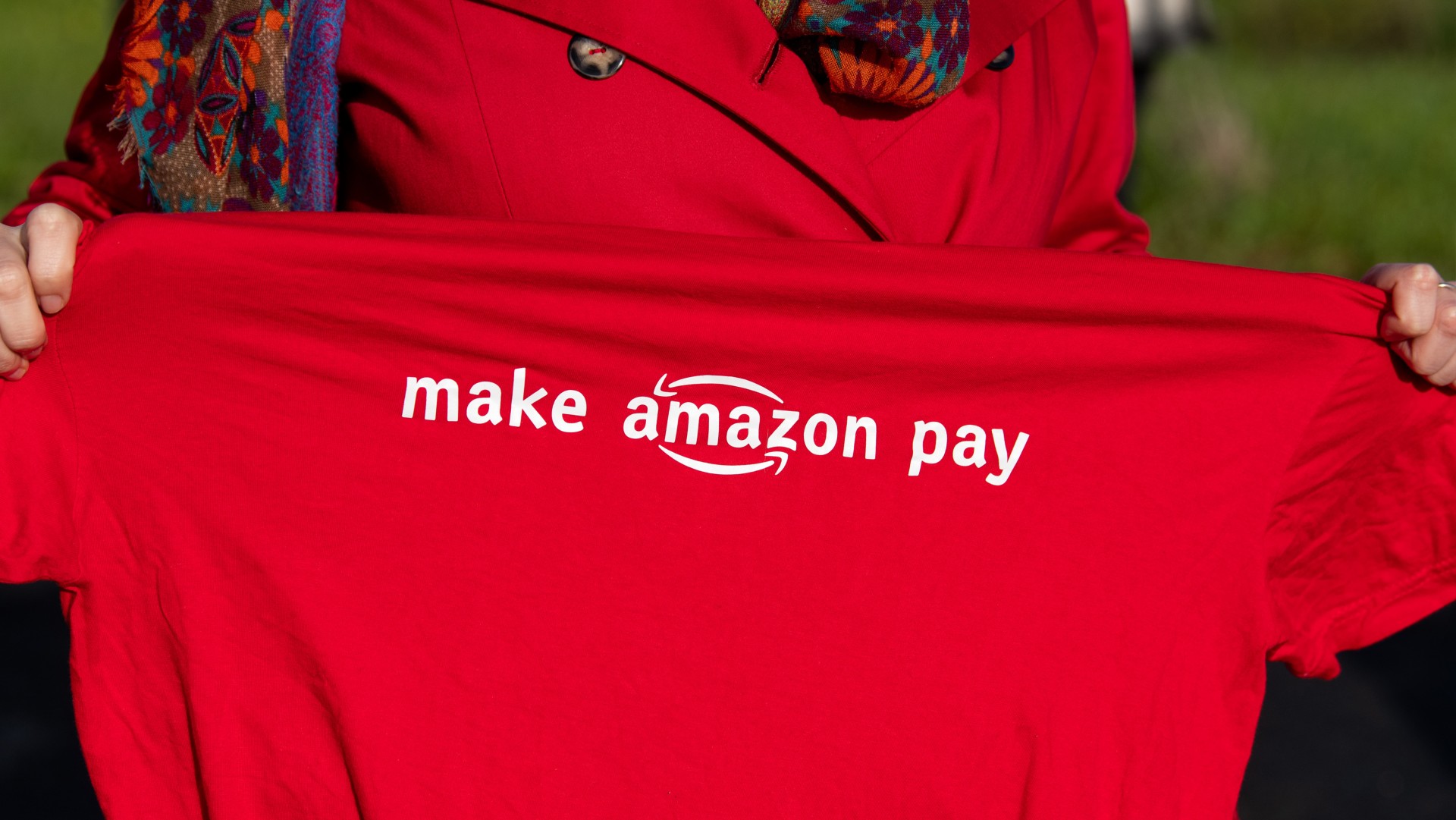 How Amazon’s first UK strike could be a sign of things to come
How Amazon’s first UK strike could be a sign of things to comefeature Big Tech is facing increasing pressure from unions as cost-of-living crisis fuels nationwide unrest
-
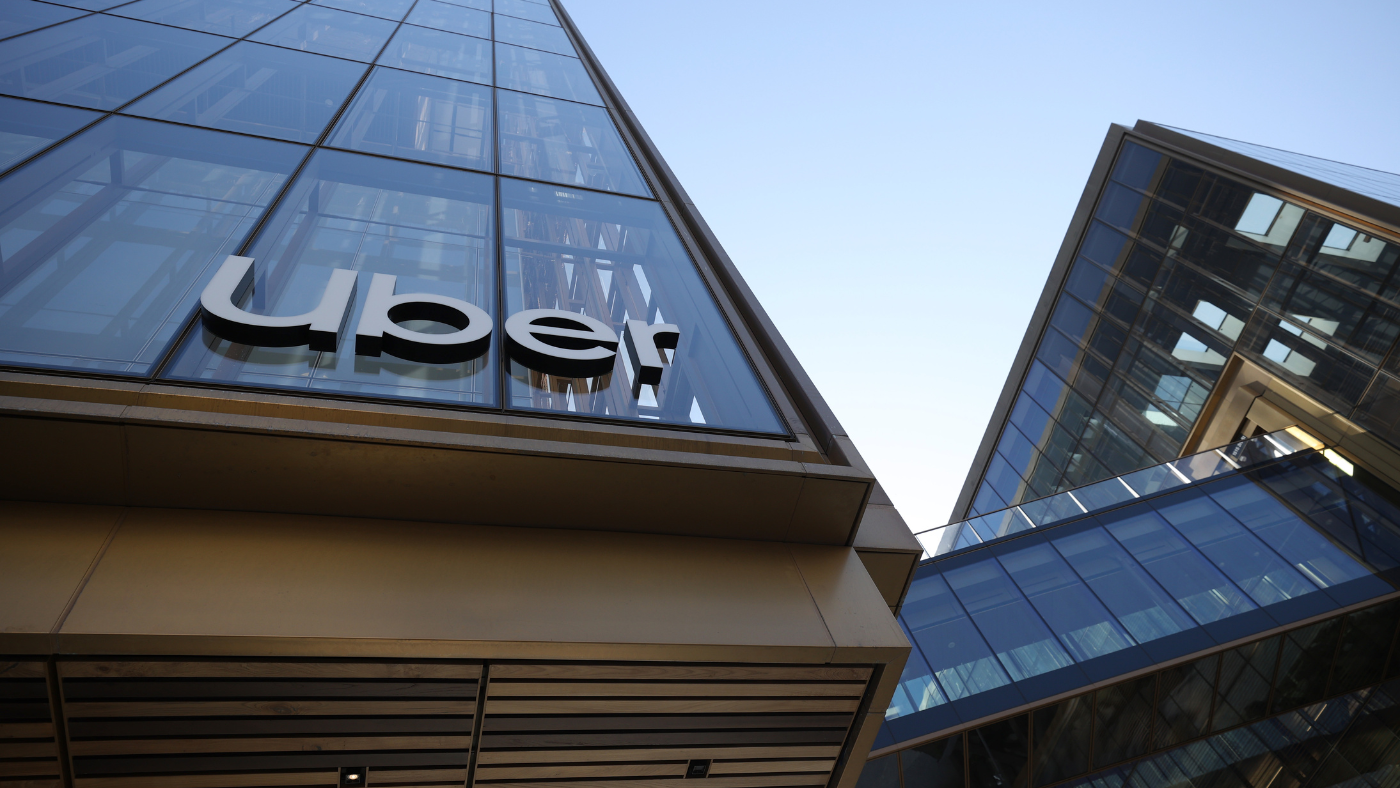 Uber files: what ‘unprecedented leak’ revealed
Uber files: what ‘unprecedented leak’ revealedSpeed Read Investigation exposes extent of government lobbying by Silicon Valley start-up between 2013 and 2017
-
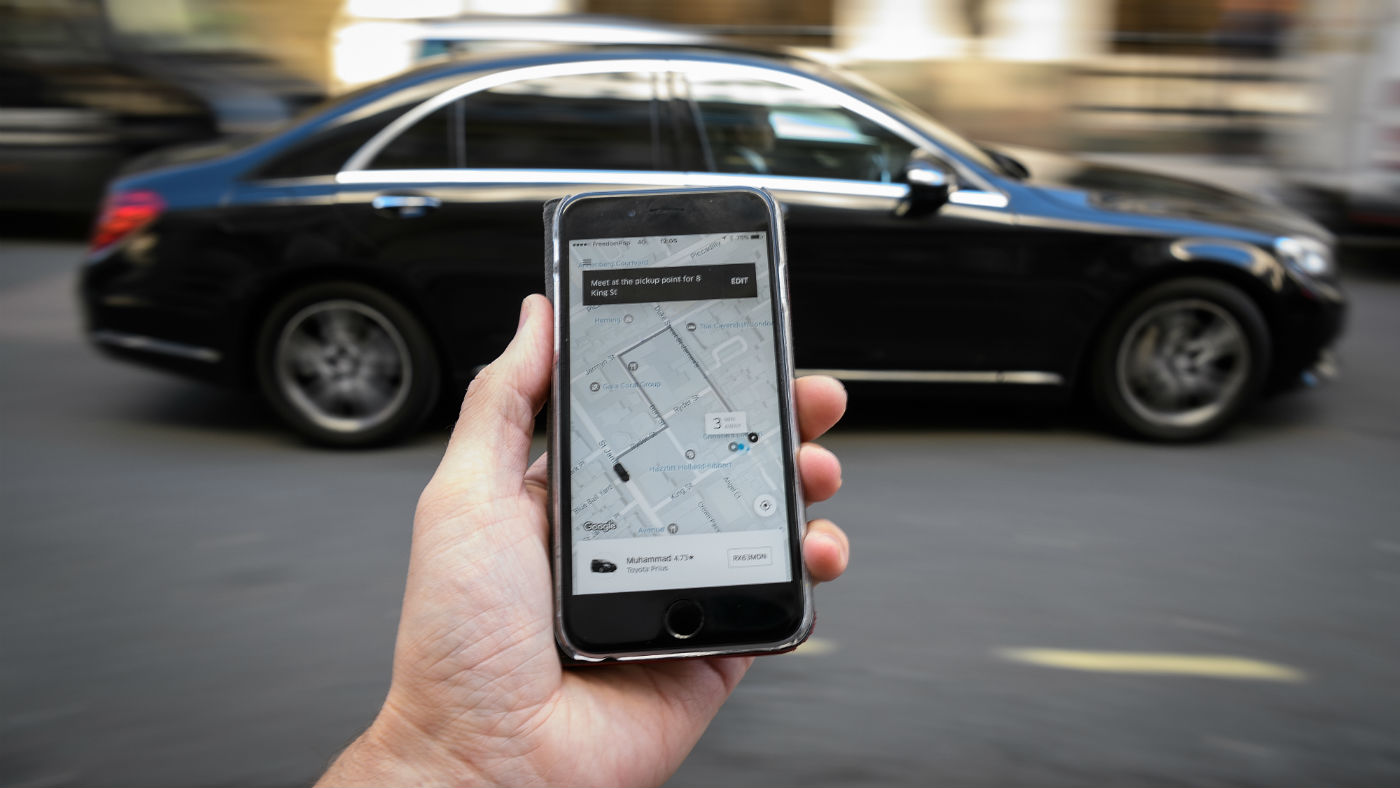 Uber vehicle fleet to be fully electric by 2040
Uber vehicle fleet to be fully electric by 2040Speed Read Ride-hailing company is setting 2030 target for UK in new plan to tackle climate crisis
-
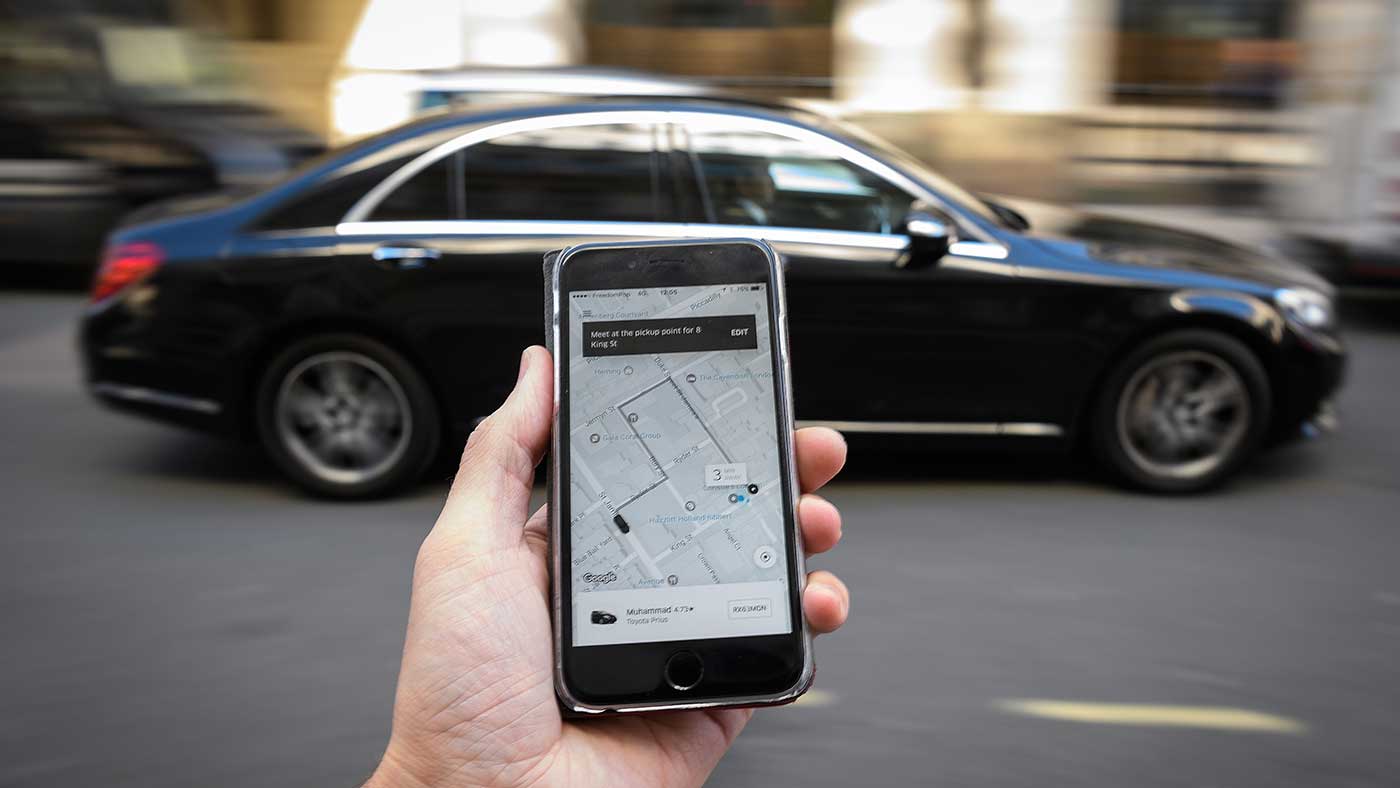 Uber’s licence renewed for two months in London
Uber’s licence renewed for two months in LondonSpeed Read Ride-hailing app lost its bid to reinstate its full operating licence in the capital
-
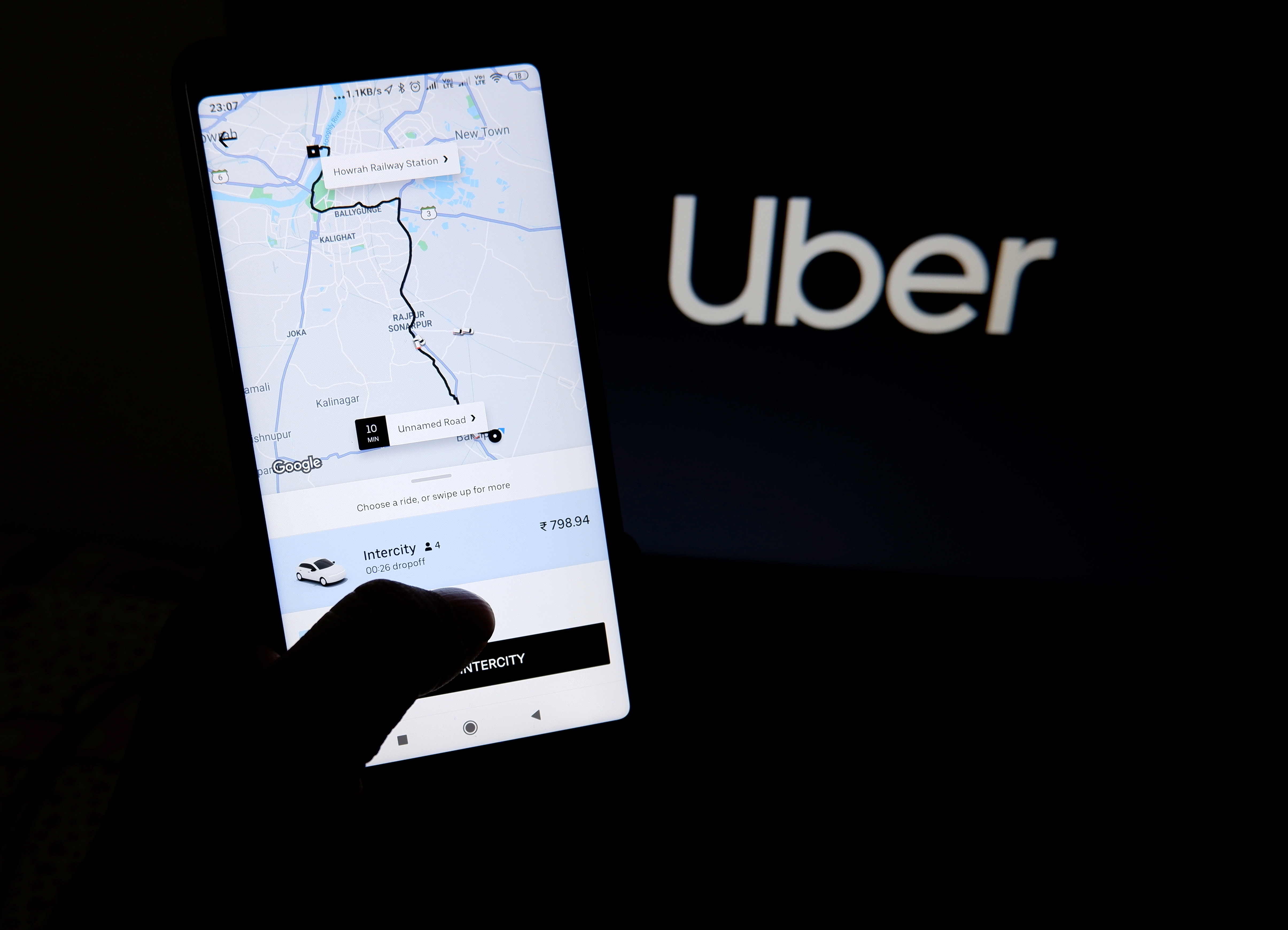 Uber reports $5.2 billion loss in Q2
Uber reports $5.2 billion loss in Q2In Depth The ride-hailing giant also revealed its slowest revenue growth ever
-
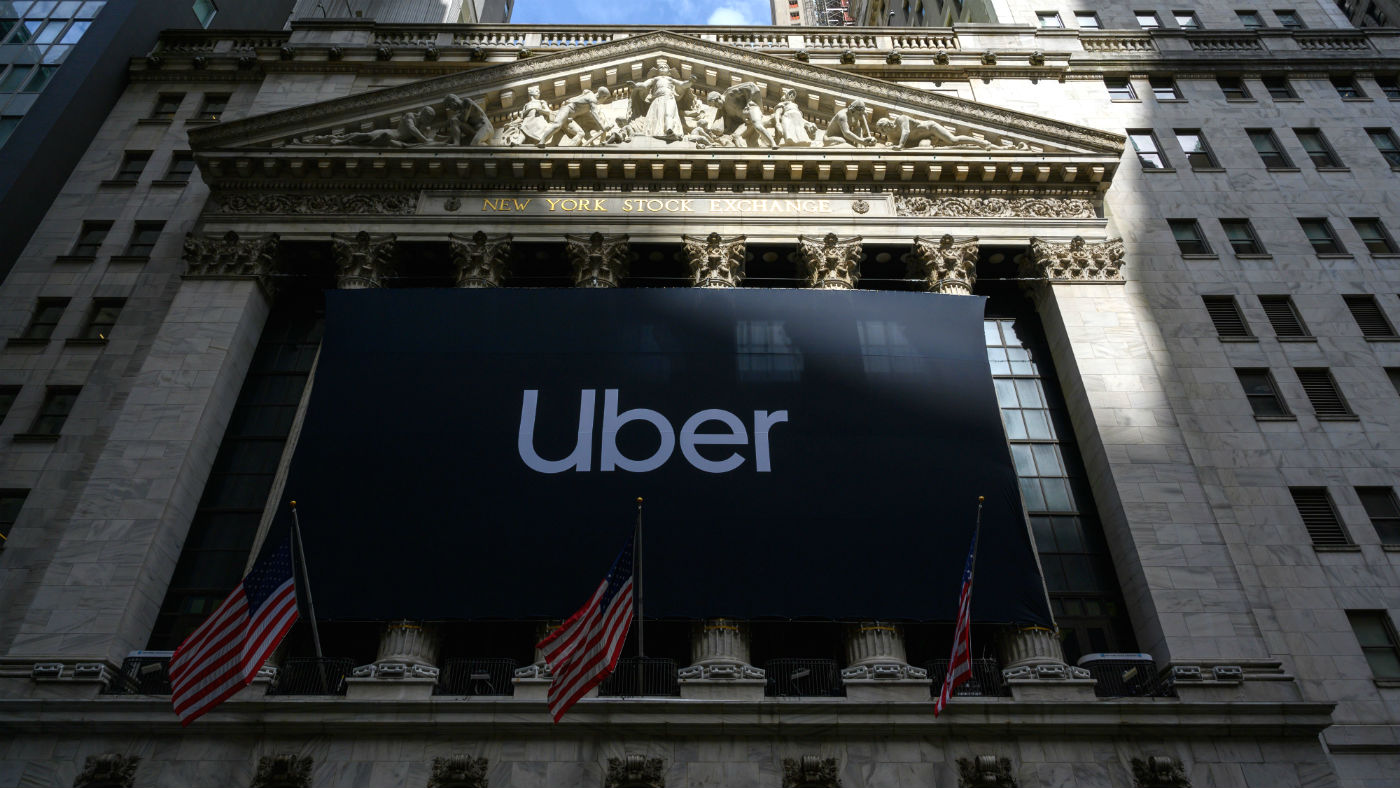 Are we headed for dotcom bubble 2.0?
Are we headed for dotcom bubble 2.0?In Depth Flotations of loss-making firms hit 2000 levels amid warning signs bubble could be about to burst
-
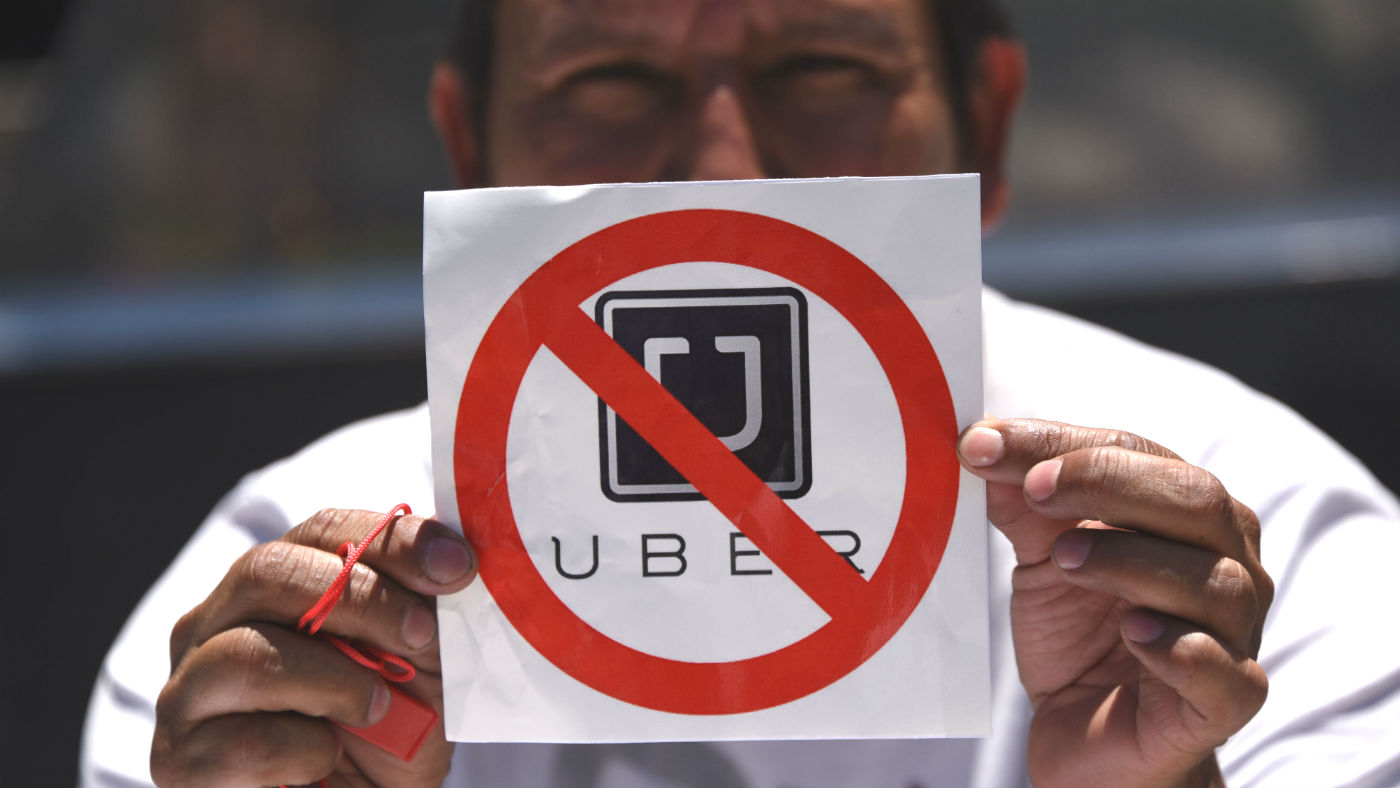 Uber drivers stage global strike ahead of IPO
Uber drivers stage global strike ahead of IPOSpeed Read Walk-out timed to coincide with Uber’s much-anticipated $100bn stock listing on Friday
-
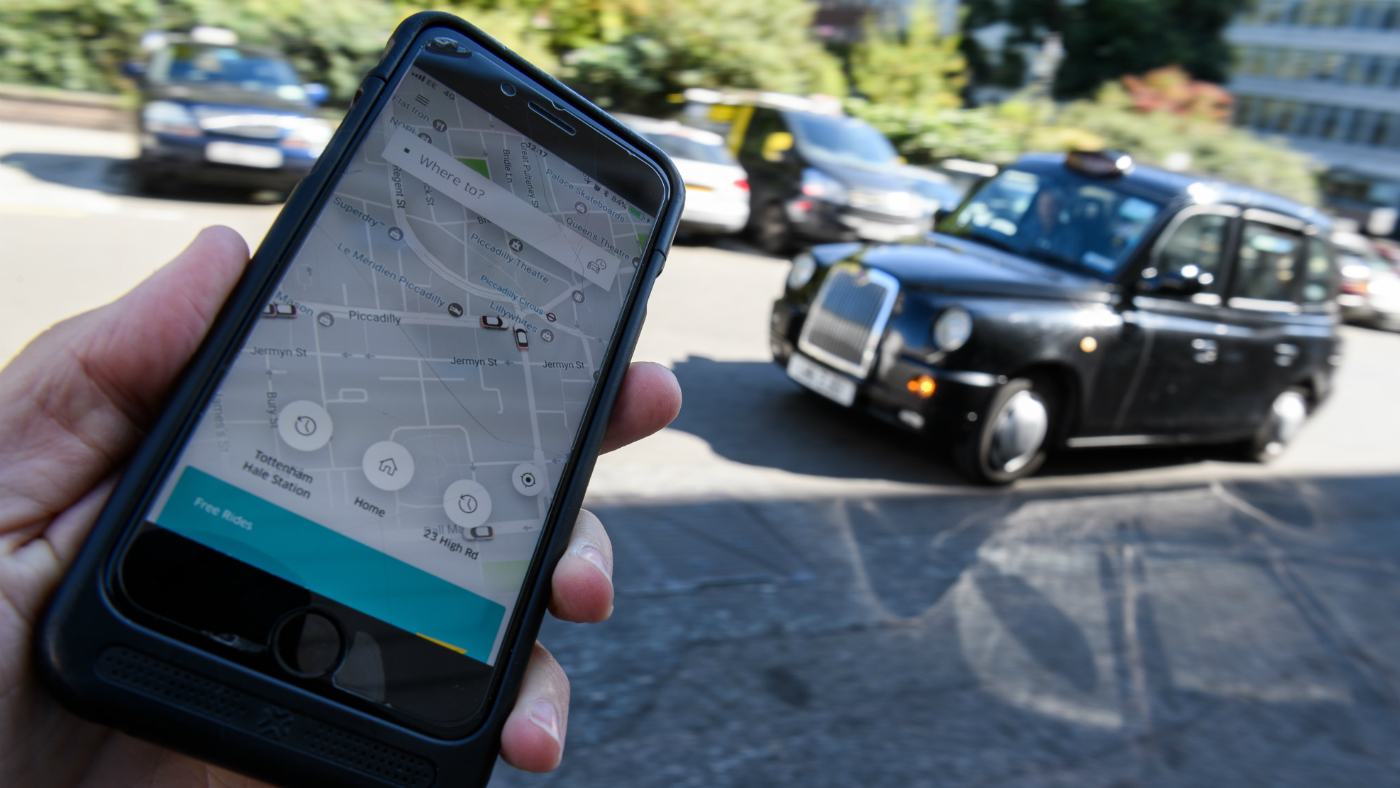 Why Uber is in court again
Why Uber is in court againSpeed Read Ride-hailing platform fighting to restore London licence